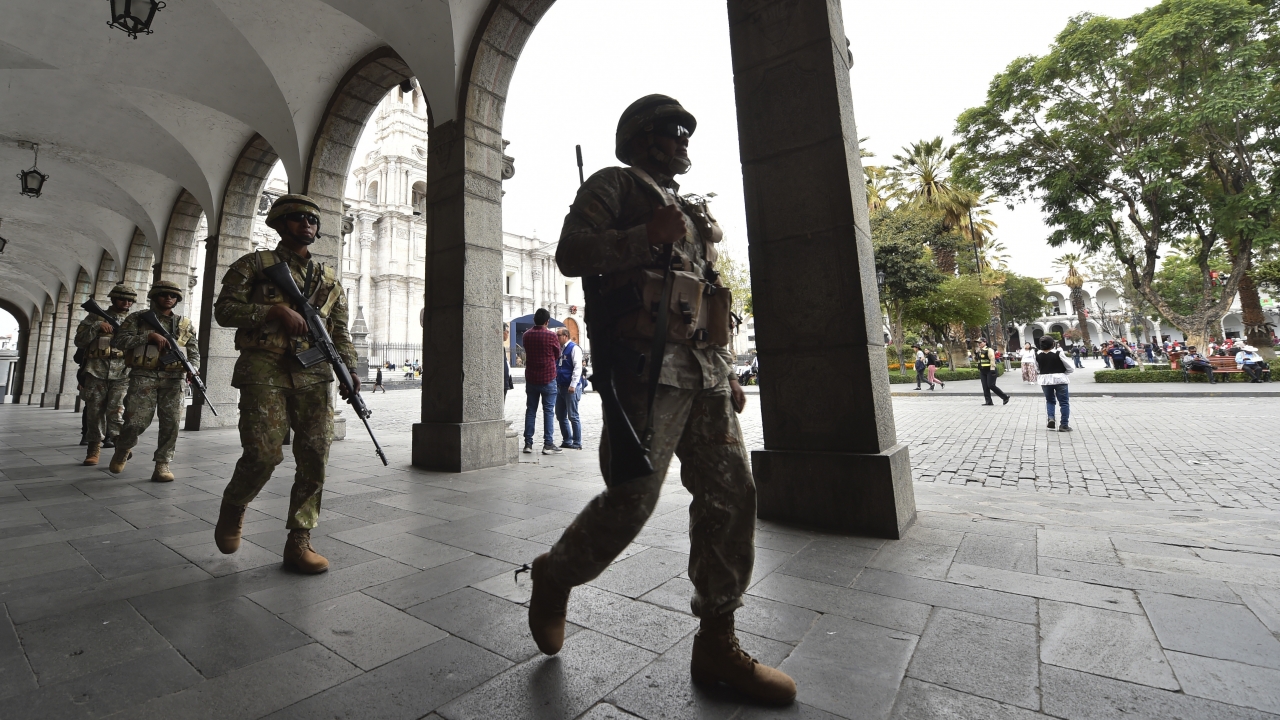Peru’s new government declared a 30-day national emergency on Wednesday amid violent protests following the ouster of President Pedro Castillo, suspending the rights of “personal security and freedom” across the Andean nation.
"The National Police with the support of the Armed Forces will ensure the control throughout the national territory of personal property and, above all, strategic infrastructure and the safety and well-being of all Peruvians,” Defense Minister Luis Otarola Peñaranda announced.
The defense minister described the declaration as “an accord of the council of ministers.” His announcement didn’t mention Peru's new president, Dina Boluarte, who was sworn in by Congress hours after lawmakers ousted Castillo.
“It has been agreed to declare a state of emergency for the entire country. This is due to acts of vandalism, violence, the seizure of highways and roads, which are certainly already being stabilized and controlled by the National Police and the Armed Forces and which require a forceful and authoritative response from the government,” he said.
The declaration includes the suspension of the rights of “personal security and freedom,” including the rights of assembly and freedom of movement. Authorities also will be able to search people’s homes without permission or judicial order. Otarola said the government has not determined whether a curfew will be imposed.
Boluarte pleaded for calm as demonstrations continue against her and the Congress that ousted her predecessor. Answering demands for immediate elections, she suggested they could be held a year from now, four months before her earlier proposal, which placated no one.
“Peru cannot overflow with blood,” Boluarte said as she floated the possibility of sheduling general elections for December 2023 to reporters, just before a hearing to determine whether Castillo will remain jailed for 18 months while authorities build a rebellion case against him. The judge then postponed the hearing because Castillo refused to participate.
“The only thing I can tell you sisters and brothers (is) to keep calm,” Boluarte said. "We have already lived through this experience in the 80s and 90s, and I believe that we do not want to return to that painful history.”
The remarks of Castillo's running mate, installed by Congress just a week ago to replace him, recalled the ruinous years when the Shining Path insurgency presided over numerous car bombings and assassinations. The group was blamed for more than half of the nearly 70,000 estimated deaths and disappearances, caused by various rebel groups and a brutal government counterinsurgency response.
Protesters have blocked streets in Peru’s capital and many rural communities, demanding Castillo’s freedom, Boluarte’s resignation and the immediate scheduling of general elections to pick a new president and replace all members of Congress. At least six people have died, all in the same kind of impoverished communities whose voters propelled the rural teachers union leader to victory last year after he promised a populist approach to governing.
Castillo was ousted by lawmakers on Dec. 7 when he sought to dissolve Congress ahead of their third attempt to impeach him. His vehicle was intercepted as he traveled through Lima’s streets with his security detail. Prosecutors accused him of trying to seek political asylum at Mexico’s embassy.
In a handwritten letter shared Wednesday with The Associated Press by his associate Mauro Gonzales, Castillo asked the Inter-American Commission on Human Rights to intercede for his “rights and the rights of my Peruvian brothers who cry out for justice.”
Additional reporting by The Associated Press.







